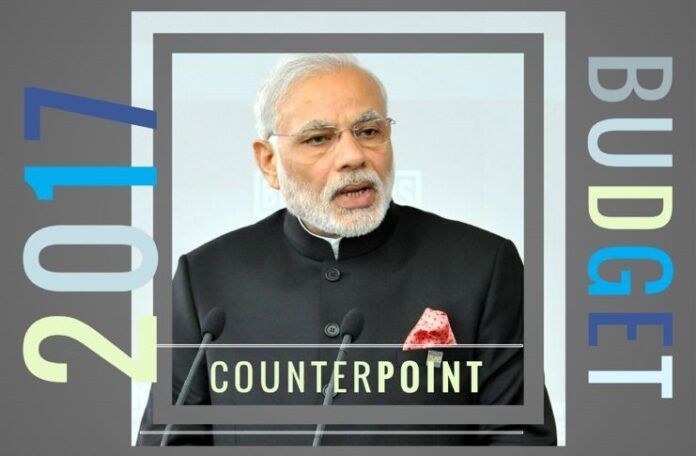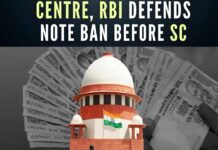
This article is in response to the article titled, “Survey, Budget float dangerous ideas” that appeared in PGurus.com yesterday.
If the tone of the article were less assertive and more by way of presenting a point of view, I would not have wanted to respond.
I wonder, what is so dangerous that is going to happen now which has not happened over the last 7 decades since Independence. In fact, many experts believe some of the ideas of the Government are path-breaking, but it is open to challenge.
Let’s go by the points made in the article, one by one:
- “The Narendra Modi government seems to have developed a penchant for bad ideas.”
I can list many good (if not great) things that Modi Government has done, but that will take the focus away from the current debate. Suffice it to say that, there is general popular support for Modi across the country. And even among intelligentsia, the opinions are only divided; which means, the Government may not be so obviously wrong. Many (including me) believe, broadly the Government is on the right track, though all of us may not agree with everything the Government does.
- “UBI and expand-tax-base pathology will also have deleterious consequences, just like the sudden ban on high-value currency has had.”
I have already explained in my article how it will take a long time to judge objectively whether demonetisation was a success or not, and why I believe it is a success, countering all the points he has raised in this article; so, I don’t want to repeat them here.
Mr. Gurumurthy has explained from a different perspective why demonetisation was not only a necessity, but is also already a great success. So, at best, one can argue that its success is debatable. Surely, the harsh and condescending tone of the article is misplaced.
- When the FM said “expanding the tax base”, he didn’t mean he would reduce the taxable income limits; on the contrary, he has reduced the taxes at the lower levels and even slightly increased the taxable limit, even if only indirectly.
What he meant is, there are many who should be paying taxes as per the laws of the land but are evading taxes; demonetisation has exposed many of them, and consequently, they will be forced into the tax base. By my own interpretation, this includes traders, professionals and small industrialists, who have already been given concessions. What’s so wrong in expecting everyone to follow the laws of the land?
- Also, Direct Taxes (like Income Tax) serve the purpose of reducing Indirect Taxes (like Sales Tax). But for Income Tax, the taxes on goods and services will be high, which will affect the poor and lower middle classes adversely, because Indirect Taxes make no distinction on the basis of economic status.
- UBI is still an idea of the Advisors, not the FM. And the FM said it may be appropriate when the Government has enough resources, which he has clarified the Government doesn’t have now.
As a concept, UBI is relevant because jobs are fast disappearing from the world (not just India) due to increasing efficiency at work places and automation; UBI would provide a safety net, which is very fair because it is the responsibility of the society to create earning opportunities for the people.
Universalisation of it may be debatable, but the difficulty of targeting and plugging leakages may force the Government’s hands, if and when it’s implemented. It appears that the day is not far off when UBI may become a necessity the world over, however undesirable it may be.
- “He levied a surcharge of 10 per cent on individuals with income between Rs.50 lakh to Rs.1 crore, expecting to earn additional revenue worth Rs.2,700 crore from it (those above Rs.1 crore are already paying this surcharge).”
Surely, the goal of the Government will be to reduce the taxes for everyone. But Economics is “NOT giving everything to everyone”; it is “optimising the resources and allocations”. There will never be a time when you can make everyone happy.
So, I hardly see any substance in this objection. Surely there’s nothing immoral in this, esp coming after demonetisation which is likely to squeeze taxes out of more tax evaders than ever before (which the author is strangely against).
- “Revenue maximization is bad economic policy: Subramanian Swamy”.
While revenue maximization may be bad economic policy per se, it is good economy policy if the goal is to build infrastructure, create a facilitating environment for individuals and businesses to thrive, and to redistribute wealth and income minimally to mitigate sufferings of the people in the interest of social justice.
Sure enough, the Government is stuck with a bureaucracy that is not the best suited to implement its policies in the best possible way. But we should appreciate the fact that the Government is not giving this as an excuse for not doing what it has to do. It is doing its very best sincerely.
Most of the people are convinced that Modi has the very best of intentions (something we’ve not seen in most PMs in many decades), and he’s doing his very best within his constraints. There will be some ‘hits’ and some ‘misses’, but indications are that the people are willing to give Modi more time; regardless of what happens in UP or in any other State, people are most likely to give Modi another chance at the Centre in 2019. And I believe, when Modi demits office, he would have accomplished perhaps a lot more than any other PM.
- How BJP can get 33%+ vote share in TN - April 1, 2024
- A transparent, equitable electoral funding alternative - March 19, 2024
- How TN BJP can come to No. 1 or No. 2 in 2024 LS polls - January 11, 2024











I tend to agree with Mr Ganesan Subramanian On the nice and simple way he has rebutted each and every point without being arrogant about them.
1. Just because an idea sounds gr8 to PM Modi and majority of people of country doesn’t make it a good idea.The results are the best criteria.
2. No matter how good it sounds, more collected taxes by government only helps government spend more which is root of all evils.
3. By asking traders and businessmen to pay more tax, we will only end up increasing end cost to customers or worst shutting down of business. Computers added tons of automation to many industries, did it reduce number of jobs? Food for thought.
4. Implementing UBI means we become 100% communist. Try living in a fully communist country.
5.It is basically way to increase tax for only a fraction of population at a time so that opposition is minimum. 6. Private businesses create better infrastructure for themselves way much cheaper than Govt.
Dear Mr. Amit Kumar,
My responses point by point are below:
1. “Just because an idea sounds gr8 to PM Modi and majority of people of country doesn’t make it a good idea.The results are the best criteria.”
I agree. Can you please clarify on the basis of what results you believe Modi’s ideas are bad?
2. No matter how good it sounds, more collected taxes by government only helps government spend more which is root of all evils.
I’ll leave this statement to the best judgment of the readers.
3. By asking traders and businessmen to pay more tax, we will only end up increasing end cost to customers or worst shutting down of business. Computers added tons of automation to many industries, did it reduce number of jobs? Food for thought.
Then why should only some traders and businessmen pay tax while others don’t? Why just traders? Why not abolish all kinds of taxes? Again, let the readers decide.
4. Implementing UBI means we become 100% communist. Try living in a fully communist country.
I think ths society should outgrow the binaries of capitalis amd communism. We need free market economy to give incentive for private enterprise. We also need to moderate the difference between the highest and lowest wealth & income, by facilitating people to at least survive with dignity, esp in the world where jobs are fast disappearing (for which no individual is responsible).
5.It is basically way to increase tax for only a fraction of population at a time so that opposition is minimum.
Over time, won’t lots of people be affected, and oppose it? I don’t understand your point.
6. Private businesses create better infrastructure for themselves way much cheaper than Govt.
True, but anyone with basic understand of macro-economics would know that the Govt should create a facilitating environment in the form of infrastructure, etc, without which no business can survive.